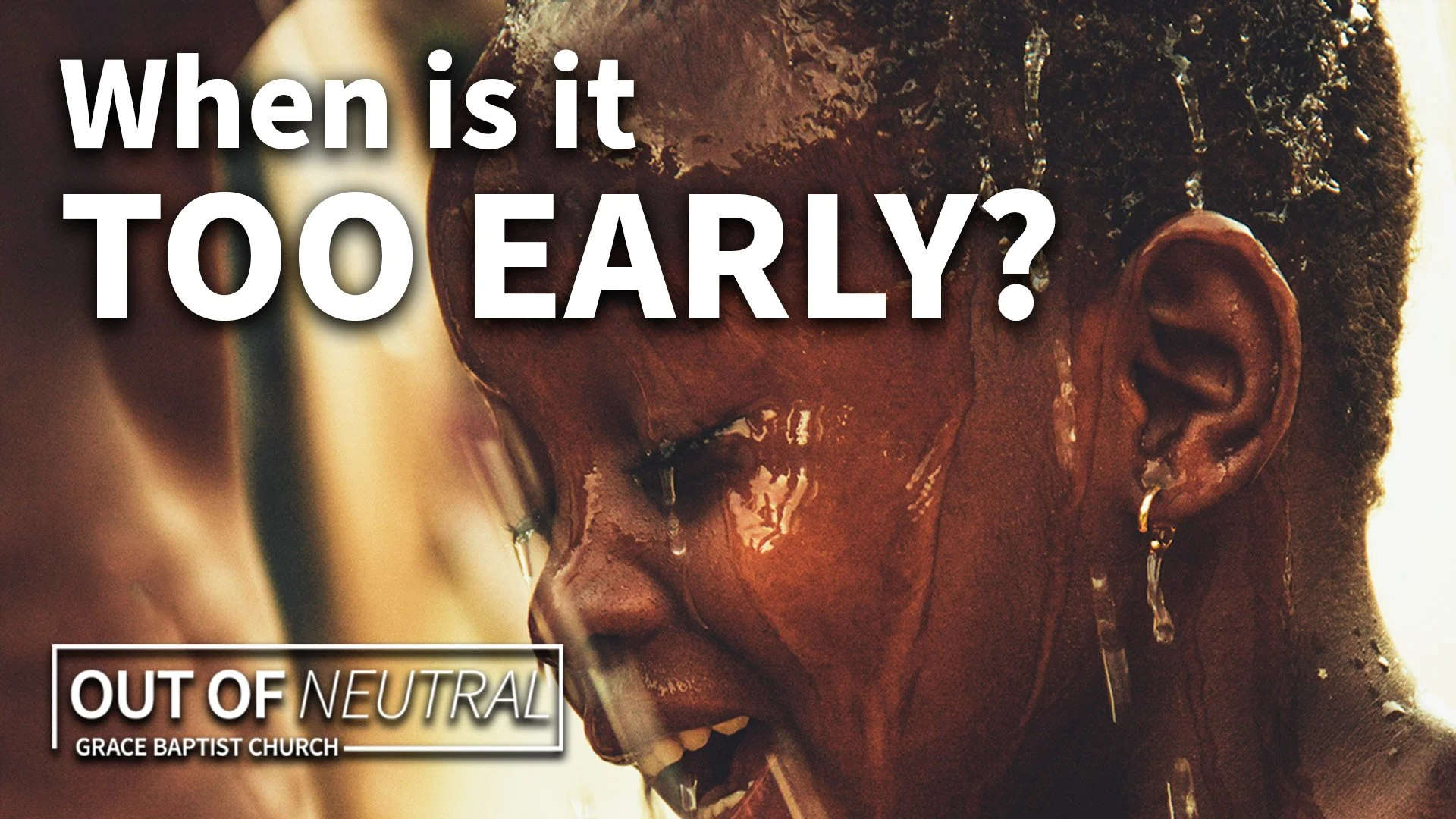Watch
Click on the image above for the video of this article or keep reading below for the text version.
Listen
Read
It’s healthy that children growing up in the church see baptisms. Watching people declare their faith and identify with Jesus through baptism can do one of two things. Some children feel a sense of conviction. They understand the connection between what they’re witnessing and invitations like Peter’s in Acts 2:38 where he said, “Repent and be baptized every one of you in the name of Jesus Christ for the forgiveness of your sins.” They realize that as much as they might like Jesus, that line of believing faith is one that they haven’t yet fully crossed. Other children are attracted. Having prayed a simple prayer to believe, baptism seems like the obvious next step in expressing their faith. It’s a command of God; what more could there be to consider?
Parents and churches have a responsibility to help their children understand some of the factors involved. I’ll try and explain the two sides of the biblical tension and how we’ve chosen to navigate them as a church.
The Bible doesn’t give an age for baptism
We probably need to acknowledge up front that the Bible doesn’t give an age requirement for baptism. But that doesn’t resolve things. The Bible doesn’t give the appropriate age for someone to get married, drive a car, or vote in an election. That doesn’t mean that we just leave those things up to the child. We instead look to other principles and apply wisdom to guide our thinking.
The Bible warns against dismissing children’s faith
Jesus is famous for welcoming children when His followers dismissed them. When people were bringing their babies to Jesus to have Him bless them, the disciples thought it was a distraction for such an important leader and they told off the parents. Jesus said, “Let the children come to me, and do not hinder them, for to such belongs the kingdom of God” (Luke 18:16). Jesus wasn’t inviting the children to be baptized, but he was showing how important children are to Him and even encouraged the adults to learn from the humility and trust that children more naturally possess (Matthew 18:1-3; Luke 18:17).
Other Scriptures speak of the importance of teaching children the Scriptures from a young age (Ephesians 6:4), and Luke even includes a curious detail about John the Baptist leaping in his mother’s womb as Mary approached, pregnant with Jesus. Discounting the genuine faith of children and their earnest desire to be baptized is unwise. But that’s only half of the story.
The Bible calls people to count the cost of faith
Many people misunderstand what biblical faith is. The decision to repent of sin and trust in Jesus is a re-orienting of a person’s entire life. It’s a commitment to let Jesus be Lord and to follow where He leads. And Jesus warned people against making the decision too lightly. He made it clear that following Him means putting Him above all other relationships (Matthew 10:37) and above everything we possess (Luke 14:33). With such a high cost, He warned the crowds that came to Him:
For which of you, desiring to build a tower, does not first sit down and count the cost, whether he has enough to complete it? Otherwise, when he has laid a foundation and is not able to finish, all who see it begin to mock him, saying, ‘This man began to build and was not able to finish.’ - Luke 14:28-30
A child can and should take steps of faith. But the full implications of what faith is usually dawn on a child slowly over time. And it’s easy for them to underestimate the cost, especially in the elementary school years when their parents make most of the decisions in their lives.
Navigating the tension of the Bible’s teaching
As a group of elders, we’ve decided to not have a formal age requirement for baptism. Dismissing the possibility of genuine repentance and faith because of the age of the child seems counter to the Scriptures cited above.
At the same time, we believe that the command to be baptized needs to be treated with healthy caution toward all people but particularly with younger children who are highly motivated to please parents and Sunday School teachers whether they grasp the implications of biblical faith or not. The fact that the child threw up their hand in response to the question, “Who wants to follow Jesus?” doesn’t really settle anything. Parents should exercise patience and caution and look for the fruit of repentance and evidence of understanding.
As a church, the way that we express that caution is not actively encouraging baptism until a child reaches Grade 7 and begins to make more independent decisions in the other areas of their life and can feel the cost and implications of following Jesus. Parents with younger children who are convinced of the genuineness of their child’s conversion and the right motivation for their desire to be baptized will be responsible for taking their child through the same discipleship that we offer to anyone who wants to be baptized (in our case, the Unstuck Life) and have their child’s profession of faith and readiness for baptism evaluated by the pastor and elders.
In awe of Him,
Paul
P. S. This article is about baptizing by immersion children who have put their faith in Jesus. If your question is about baptizing infants, read my article here.













